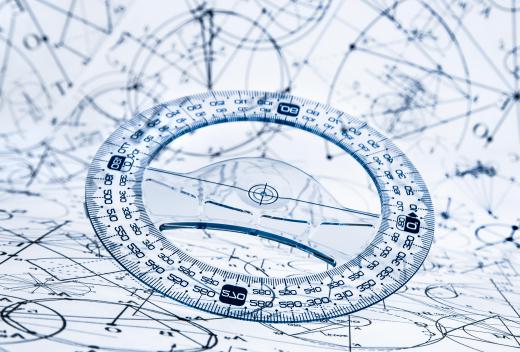How Long will the Universe Last?
 Michael Anissimov
Michael Anissimov
According to contemporary cosmologists' best guesses, the universe will continue to last for an extremely long time, something over a googolplex years. A googolplex is a very large number — 1010100. Some estimates are even larger. The question of how long it will last is related to the question of how long the human species, or our descendants, will last, barring some disaster that wipes people all out prematurely.
It is known that the universe is expanding, but a frequent question is whether or not this expansion will continue indefinitely. Current signs indicate that not only is expansion occurring, but it is happening at an accelerating rate. This can be blamed on a universe-wide negative pressure, referred to as dark energy, the cosmological constant, or quintessence. The notion of a cosmological constant was first formulated by Einstein.
Prognostications regarding the lifespan of the universe are traditionally associated with its overall geometry. Its geometry is a function of its overall density. A critical value, omega (ω), comes into play here.

If the universe's density is more than ω, it is closed, meaning it has a spherical spatial geometry. In a closed universe, if a person travels far enough, she ends up back at her starting point, just like on the planet Earth. If its density is about equal to ω, it is flat, meaning that without dark energy, the rate of expansion would slow and asymptotically approach zero. If the density is less than ω, it is open, meaning that it has a negative overall curvature, and will expand indefinitely with or without dark energy.

Currently, it looks like the universe is flat. The catch with the above analysis is that, with enough dark energy, it will expand indefinitely no matter what its geometry is. Recent studies show that the universe probably contains that much dark energy.
If the universe continues expanding for a very long time, eventually galactic superclusters will rip apart, followed by local clusters, galaxies themselves and eventually individual stars and atoms. If humanity's descendants are clever about which arrangements of matter they use to instantiate and power themselves, however, they can prolong their existence almost indefinitely. For example, even black holes produce some power through Hawking radiation, which life could cluster around and use to its advantage even if stars have burnt out. Living indefinitely in a continuously expanding universe would be no picnic, but is probably preferable to living in a closed one that collapses back in on itself in a fiery Big Crunch.
AS FEATURED ON:
AS FEATURED ON:















Discussion Comments
Matter and energy are interchangeable if you know what matter and energy really are. Both processes actually occur in our sun. The universe will last forever but we will not, the solar system will not, the milky way will not. If you could determine the age of the elemental atoms comprising the average human, then parts of us are trillions, yes, trillions of years old. The primary constituents of those atoms/energy will never cease to exist. Only the patterns change. Human patterns are very finite. Atomic patterns are very long lived. The primary constituents , just like the universe, never die. However, change is constant. Happy trails, guardians.
Haven't you figured out yet that theories that lead to dead ends are 'dead end theories'. The 'big bang' theory is squarely in this category, and thankfully, more scientists are beginning to figure that out. Gravity is only part of the equation when it comes to the workings of the universe.
On another point, the continuation of the religious brainwashing of a major portion of the youth on this planet serves no positive purpose to man as a whole. This simply demonstrates human nature at its worst: man controlling man. If you were God, how would you feel if someone did things on your behalf without your permission. The 'big bang' theory is as much a 'con' as religion. Happy trails earthlings.
It won't "last" forever in the sense that there will be the "same" thing after a very extended period of time, but as it changes constantly, this will last forever and ever and ever, and it even might contract and "die" as we understand this process today. It will only contract to an extend that was before the "big bang" - and bang! The whole thing will start over again and again -- that's for sure!
Yes, stars burn hydrogen but galaxies produce hydrogen. The hydrogen cycle is but a small part of the universal cycle. I think scientists generally become too focused and specific in their education and later in their endeavors to put it all together.
The universe is cyclic in nature, without beginning or end, and self balancing. One may come to understand it because all the processes are going on at the same time; just not in the same place, but certainly within our e-m observable range. I don't consider myself to be smart but I do think some scientists are just dumb. Mark my words: within 50 years they will be teaching the entire process in grade school.
Surely the universe, or at least a large proportion of the matter, can't last forever. Stars only have a finite amount of fuel for their nuclear reactions. Once this is used up, they die. Unless new stars can be formed endlessly from some unknown source of hydrogen, then the universe is going to end up a very cold, dark and lonely place. Perhaps the space itself will continue to exist, but complex life won't -- that seems fairly certain.
Rest easy folks. The universe will last forever. It is a self balancing system which is not expanding. It only seems to be. I wonder how long it will take the mental midgets who rule the scientific community today to figure that one out.
Isn't it amazing how theoretical science, without intuitive thinking, degenerates into science fiction? Someone should do a study on how the Nobel Prize has contributed to junk science. I love science fiction, but if you're the kind of person who believes we only have so much time on earth before an apocalypse, then it's not comforting to know these boys (our brightest minds?) are throwing it away. When they do understand the self-balancing process of the universe, they will understand.
@ysmina-- You mean like a second big bang?
Scientists are also saying that the universe is constantly expanding. At one point, it's supposed to become so large that the temperature of the universe will either cause everything to freeze or to burn out.
There are so many theories about the end of the universe out there.
I personally think that our universe is contained within other universes. So even though it will close in on itself and disappear one day, it will be replaced by another universe.
It's also kind of pointless to think about because none of us are going to be here to witness any of this.
From the point of view of religious theory, one argument is that the universe will eventually come to an end because we have already been informed by God about the apocalypse. The end of the world or the universe is mentioned by many religious texts.
Scientists might think that the universe will last an indefinite amount of time but I don't think that any of these estimations are accurate because ultimately, a supreme being will make that decision.
"Is it possible that some particles in universe can travel faster than light?"
According to physics, technically not, but it is known that when something approaches the speed of light that time slows down substantially.
So, say you were on a ship that approached light speed and time slowed down. You could technically travel a distance for 30 years that would usually take you 100 years (3:10 ratio is not correct, just an example) at that same speed if time didn't slow down.
The catch here is that time only slows down for the ship moving at near light speed so everything else would have aged 100 years, where you have only aged 30. This is how time travel to the future is thought to be possible, as well.
My point is that no, you technically didn't travel past the speed of light, but you traveled 100 years' worth of distance in 30 years, so wrap your mind around that.
"The question of how long the universe will last is related to the question of how long the human species, or our descendants, will last"
No, it isn't. It's related to how long the universe itself will exist with or without humans. Just because humans are gone doesn't mean other life forms or species don't exist elsewhere. At best, you could say it's related to how long the universe will be able to support life, period.
theoretically yes - tachyons.
According to Quantum Theory it is possible.
Probably not.
Is the possible that some particles in universe can travel faster than light?
Post your comments